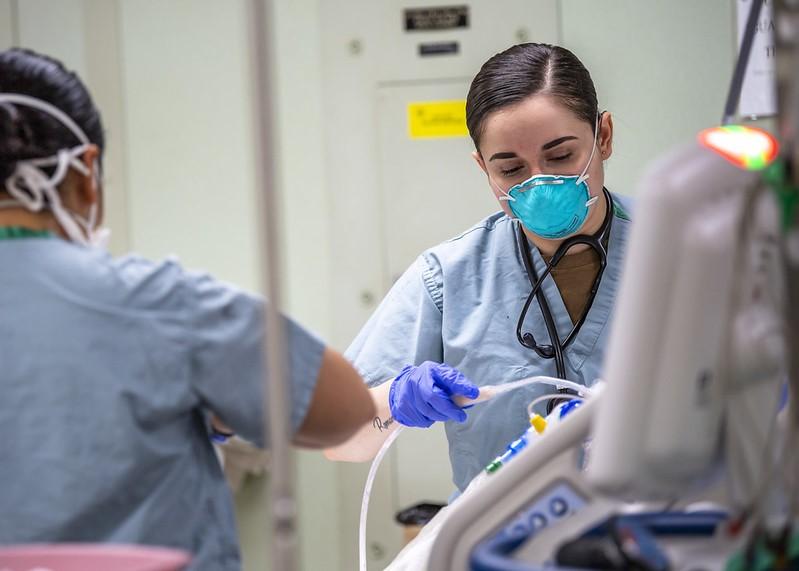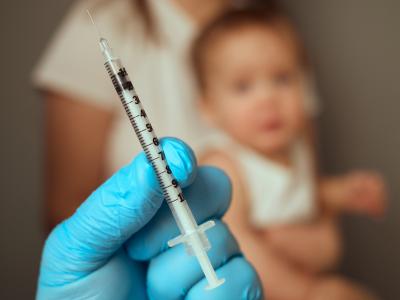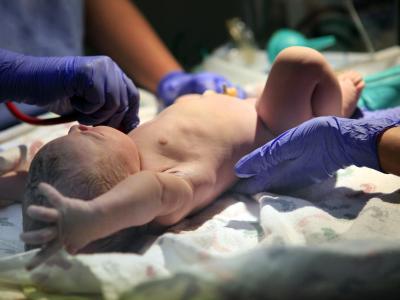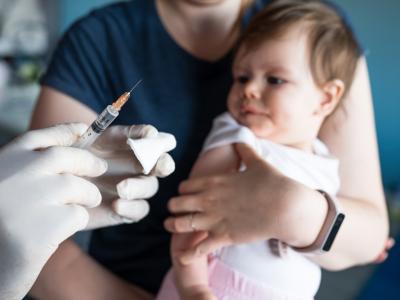Compared with both uninfected people and COVID-19 outpatients, hospitalized COVID-19 patients were at dramatically higher risk for death, a blood clot in a vein, heart failure, and stroke within 30 days, suggests an observational study published yesterday in Heart.
A team led by researchers from the Queen Mary University of London assessed rates of new-onset cardiovascular disease among 17,871 UK Biobank participants who tested positive for COVID-19 from March 2020 to March 2021 and 35,742 uninfected controls. Of the COVID-19 patients, 2,701 were hospitalized for their infection, 866 were admitted for another indication, and 14,304 were outpatients. Follow-up was, on average, 141 days.
118 times greater risk of death
Heart attack, stroke, heart failure, atrial fibrillation, venous thromboembolism (VTE; blood clot in a vein), pericarditis (inflammation of the heart lining), or death from cardiovascular causes, ischemic heart disease, or any other cause occurred in 9% of COVID-19 patients and 0.7% of controls.
COVID-19 outpatients were more than 10 times as likely as uninfected controls to die of any cause and nearly 3 times as likely to develop VTE. But the most severe cardiac outcomes occurred among patients hospitalized for COVID-19, who were at 118 times the risk of death as outpatients; in comparison, the risk was 64 times as high among COVID-19 patients hospitalized for other reasons.
Compared with controls, patients hospitalized for COVID-19 were at more than 27 times the risk of VTE, upwards of 21.5 times the risk of heart failure, 17.5 times the risk of a stroke, nearly 15 times the risk of atrial fibrillation (irregular, rapid heart rhythm), 14 times the risk of pericarditis, and 10 times the risk of a heart attack.
The greatest risk of new cardiovascular disease diagnoses, particularly for atrial fibrillation, VTE, pericarditis, and all-cause death, was in patients hospitalized for COVID-19 and in the first 30 days after infection. The risk, however, especially for heart failure, atrial fibrillation, VTE, pericarditis, and all-cause death, remained elevated beyond 30 days but at a lower level.
Role of anti-clotting therapy
While the researchers didn't consider potential confounding factors such as COVID-19 vaccination, new circulating SARS-CoV-2 variants, or reinfections, they said that the long-term health effects of previous infection are an important public health issue.
"Our findings highlight the increased cardiovascular risk of individuals with past infection, which are likely to be greater in countries with limited access to vaccination and thus greater population exposure to COVID-19," they wrote.
In a related commentary, Anda Bularga, MBChB; David Newby, MD, PhD, BMSc; and Andrew Chapman, MBChB, PhD; all of the University of Edinburgh, noted that COVID-19 outpatients had lower rates of heart attack but said this finding could be due to selection or reporting bias or to lower rates of physical activity or other lockdown-related risk factors.
They said that cardiac imaging and measures to lower the risk of blood clots in hospitalized COVID-19 patients may be needed. "Clearly, duration of therapy is relevant, and these data do question whether 7 days of prophylactic anticoagulation is sufficient for patients with COVID-19," Bularga and colleagues wrote.
They add that the commentary "provides a fuller and more complete appreciation of the breadth and degree of these associations that will inform how we now try to treat and to prevent the cardiovascular events associated with COVID-19 in the years to come."




















